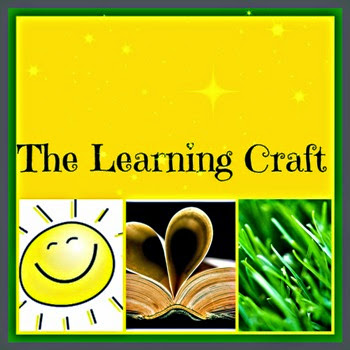 |
| I don't! |
I was preparing for an exam at work and a colleague looked into the book I was reading. She asked if I could work out all the statistical calculations I was looking at. I laughed quite hard and answered with an emphatic 'Yes' to her question to which she replied, "I truly do not know what I did in Math throughout my High School days because that subject was always alien to me! MY BEST FRIEND AND I HAD NO CLUE! I HATED MY MATH TEACHERS!"
I have noticed among many circles that there is a general phobia for Mathematics. This phobia by the way is called Arithmophobia. Even though I escaped it (the phobia) for many reasons which include the fact that I always thought Math was easier than the rest; I now understand the reasons why most of us in our adolescence ticked off the 'dreaded Math'. OUR TEACHERS DID THIS TO US.
The teachers are not to be blamed entirely because most of them were not properly trained to gain the skill of using the best approaches to deliver enjoyable Math lessons to students. Many of them stumbled into the profession as a means of livelihood. The structure of the education system did not give room for innovation and new ideas among many other reasons.
However, a good teacher's reaction to a student who is struggling with Math should never be synonymous to those of SOME of 'our' Math teachers back in the days. I know a Math teacher who once declared in class that Math was meant for only genuises!! Some of their methods contributed largely in students 'hating' the subject even at benchmark examination periods.
However, a good teacher's reaction to a student who is struggling with Math should never be synonymous to those of SOME of 'our' Math teachers back in the days. I know a Math teacher who once declared in class that Math was meant for only genuises!! Some of their methods contributed largely in students 'hating' the subject even at benchmark examination periods.
 |
| I don't think so! |
It’s incredibly important that educators incorporate adolescents’ needs for Autonomy, Belonging, and Competence into many aspects of school, from classroom structure to curriculum and assignments. These needs are not unique to adolescents, but they become particularly salient with the physical, social, and cognitive changes teens go through during this time. It’s very important that math teachers keep these three needs in mind; adolescents often use their performance in math to judge their intelligence and ability to succeed in school.
As adolescents pursue Autonomy, they begin to separate from and question adults. They may ask why they need to take math and when they’ll use what they are learning. Take students’ questions seriously. Explore them while guiding students to ask questions politely. Offer students a choice of assignments when possible, such as allowing them to do the regular textbook homework set, write an explanation of how to do the problems, or post a video of themselves explaining a concept.
Belonging to a group is comforting for all of us, but is especially important for adolescents, who are solidifying their identities and feel unsure of themselves. As long as teens can do so productively, let them do some classwork in friendship groups. Assign homework or tests that allow kids to work together. Hands-on math activities that give each group member a specific role boost both learning and sense of belonging and reduce the anxiety often associated with demonstrating a math problem in front of an entire class. Make sure each individual student feels she or he is a vital part of the classroom who would be missed if absent. Help students use math to do service projects for the community so they feel they have an important contribution to make.
Competence is definitely something many adolescents don’t feel, especially in math. Seek out activities and assessments that expand beyond traditional textbook problems and tests, such as projects where students can continue to work on and improve their skills, rather than compete against others for test scores. When tests are necessary, emphasize mastery over grades, allow for test corrections or retakes, and use math content to help students improve study skills and figure out how they learn best.
Math teachers must give love so as to get love in return. It makes the entire learning process easier for the teacher and student. So, if you know any Math teachers out there, give them these tips to remind them of how adolescents will embrace Math.
We were all born to do Math! So says our natural instincts!
We were all born to do Math! So says our natural instincts!

Math had always been very easy to me. I enjoy the subject and my teachers made it fun while teaching so we were all very happy to do Math rather than read passage (boring). We were also rewarded for getting all question in our exercise, so it was a competition where none wanted to fail. Rhoda rightly started that most of the teachers just stumbled into d profession as a means of livelihood and not the passion for transferring knowledge. As bad as it is now, my children come 1st in math but struggle thru other subject. I really wish teachers show re-train themself on how to transfer knowledge, not just math but all subjects
ReplyDeleteThanks Ademola. Training and re-training of teachers will change the entire story. As a teacher, I know it will do us a lot more good if our administrators realized the importance of spending money on training because education evolves as human beings and technology changes.
ReplyDelete